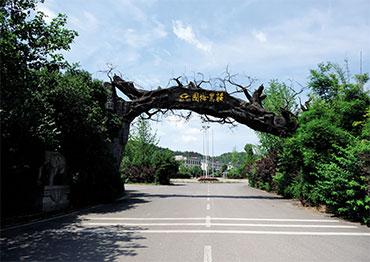Data from China’s National Bureau of Statistics shows that its population above 65 years old has increased from 4.4 percent in 1953 to 14.2 percent in 2021, 5 percent higher than the global average. The growth rate from 2010 to 2020 was 0.46 percent, compared to 0.18 percent for 2000-2010 and 0.15 percent for 1990-2000. Due to the declining birth rate and rising divorce rate, China’s average family size dropped from 4.41 people in 1982 to 2.62 people in 2020.
These trends, coupled with younger people migrating to urban centers for work, mean the traditional family structures that once helped to provide elder care now face tremendous challenges.
In 2013, the Chinese government issued a document encouraging private capital to invest in elder care fields. That same year, fraud targeting the elderly reached a peak.
Shunxiang, for example, began signing up residents in Changsha in 2013. Over the following years, the company expanded to neighboring cities. By 2016, the company heads had incorporated and expanded their businesses to other provinces like Zhejiang.
According to the 2013 regulation, elder care facilities cannot charge or sign up customers without an operating license. The civil affairs bureau of Changsha said Shunxiang had never received one.
Authorities notified Shunxiang several times between 2014 and 2018 to resolve the issue. In 2016, Wangcheng District civil affairs bureau determined that Shunxiang was not qualified to provide elder care services and should be targeted for supervision. However, Shunxiang was not deterred.
Victims told NewsChina that their trust in Shunxiang stemmed from the reputations of its leaders. Wang Guomei, for example, was a member of the local People’s Political Consultative Conference of Baojing County. Jia Shunxiang, another suspect named in the case, was a retired director of the Standing Committee of People’s Congress of Baojing County. Both Wang and Jia were sentenced to life in prison. Shunxiang’s president Qi Fuming once headed a large State-owned enterprise. He received 15 years in prison.
“Although Wang and Jia rarely appeared at presentations, Qi frequented them and stressed how they were passionate about the elder care industry,” Huang Tiancheng told NewsChina, adding that several local officials have visited the facility. “We felt secure because we thought that the home was supported by the [local] government,” he said.
According to media reports in 2016, Hunan Province’s business rating bureau gave Shunxiang its highest, AAA. The next year, the company was awarded by the Hunan Provincial Association of the Aged Social Service as a “leading contributor company.”
Similarly, Xijiangyue in Wuhan was never licensed for elder care services. A police officer in Wuhan told NewsChina on condition of anonymity that the company built the home before getting all the required building permits. Local media reports show that Xijiangyue’s facility was promoted by the local county government to attract investment.
Some of these cases ended in tragedy. In January 2021, a 62-year-old man in Hunan Province committed suicide by jumping off a bridge after learning he was cheated out of 170,000 yuan (US$26,000) by a local elder care home. Media reports said the facility, Nuoma, had duped more than 4,000 people between 62-89 years old.
Most of the victims cannot get their money back. According to the legal representatives for the victims in the Shunxiang case, police only recovered 3 million yuan (US$444,800) out of the total 1.73 billion yuan (US$266.2m) owed.
Liu Jianbin told NewsChina he now lives in a nurse’s home, who also cares for several other elderly people. Although he still has 400,000 yuan (US$61,500) owing from Shunxiang, the company denies it took the sum. But Liu considers himself luckier than the thousands of other victims that never lived a single day in the home they paid for.
Luo Youwu said she has given up on finding a nursing home she can afford. Spots at public nursing homes are getting harder to come by in China. As the overall population ages, demand for public nursing homes continues to exceed supply, while private facilities struggle with staff and capital shortages.
Most people in need cannot afford them.
In June 2021, Huang Guoliang became a Buddhist monk and moved into a temple in Changsha for a time before returning to his empty apartment. Huang said he no longer tours nursing homes. Instead, he is picking out a funeral home, he said.

 Old Version
Old Version


